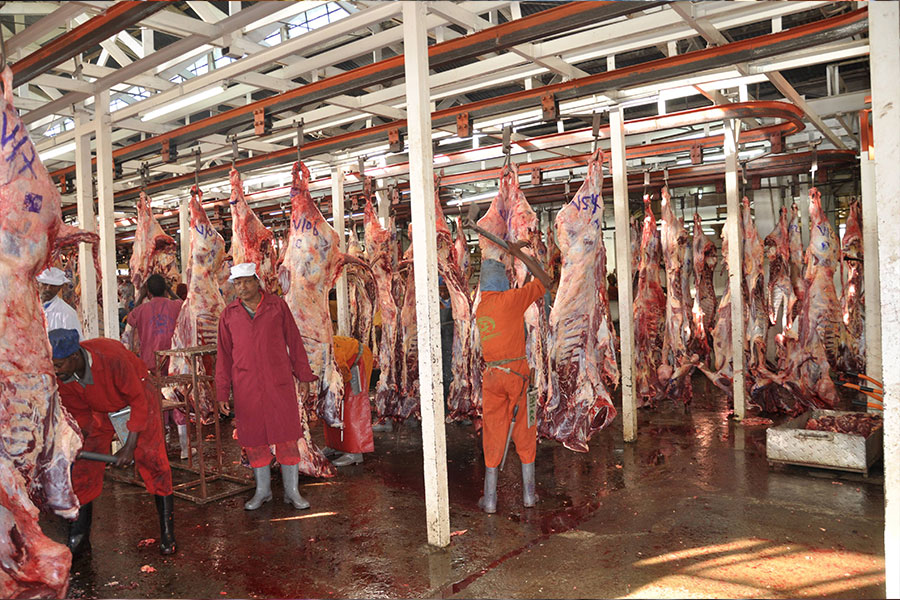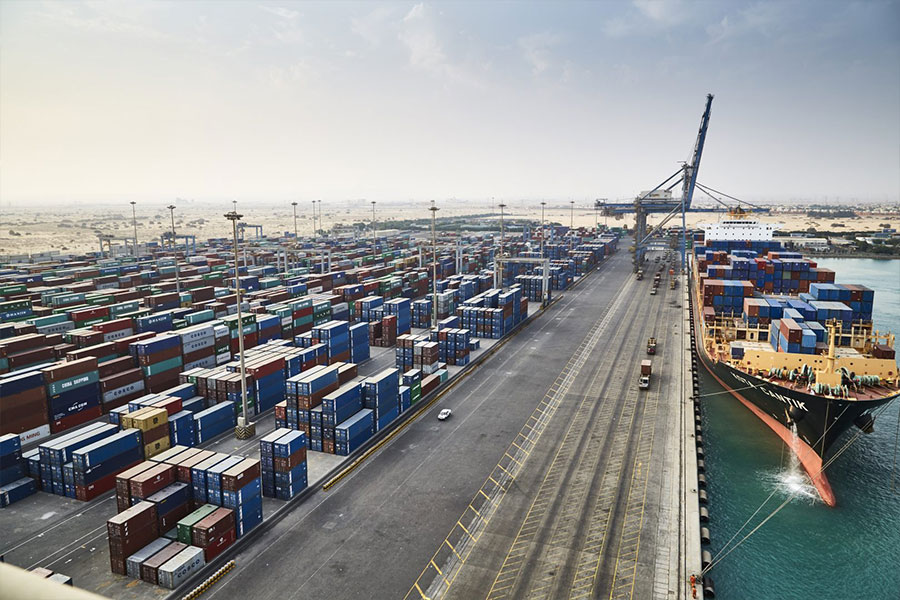
Jan 1 , 2023
By AKSAH ITALO ( FORTUNE STAFF WRITER )
Sesame and red kidney bean exporters are bound to present their contracts to overseas buyers before trading at the Ethiopian Commodity Exchange (ECX). The Ministry of Trade & Regional Integration (MoTRI) issued a notice three weeks ago, allowing service exclusively to exporters that have contracts with international buyers prior to buying the commodities.
Following the notice, close to 73 sesame and red kidney bean exporters have registered. They are required to export the commodities within 40 consecutive days after registration, having a ten-day amendment period.
According to officials at the Ministry, the exacerbated hoarding and contraband pushed them to apply the forward trading scheme with hopes of making the exporters clear out stocks before registering for a new trade. Mesfin Abebe, an advisor at the Ministry, believes that the forward trading system will benefit those who have already formed a contract with a feasible price to get the commodities exported while ensuring proper foreign currency generation.
A quintal of sesame that makes its way from Wollega and Humera towns is sold for a minimum of 1,700 dollars at the international market while trading for close to 10,000 Br at the ECX floor. Red beans follow suit with 565 dollars overseas while trading for 3,500 Br on the exchange floor.
For Mesfin, the high demand for sesame and red kidney bean prompted the hoarding and price hike in the domestic market.
Sesame is the second most valuable agricultural commodity, next to coffee, ranking first in oil seed exports.Over one million quintals of Sesame was exported last year, earning 235 million dollars in revenue. Red-kidney bean amounting to 370,440qtl was exported, generating 19 million dollars in the same period.
Israel, a significant consumer of sesame products, imported 85,000tns, which accounts for over 14.6 million dollars. Singapore and UAE follow, accounting for 8.2 million dollars and eight million dollars in export revenues, respectively.
The two-year conflict in the Tigray and Amhara regional states that account for 90pc of total sesame production has made its impact. The conflict had exacerbated a decline in revenues from sesame exports. Dropping by close to 115 million dollars from what it was five years ago. For the past five months, 1.5 billion dollars in revenue had been generated from the export sector. Oil seeds account for 72 million dollars, while crops and khat earned 74.6 million dollars and 116.5 million dollars, respectively.
The notice did not sit right with some exporters. The Export Manager at Ademe Mekonnen Export Plc, Mahitebe Memire, worries that the time limitation requirement will be a challenge.
He said that preparing the export items and transportation takes up much of the time. The possibility of finding a buyer with a fixed price and limitations to get the commodity to full capacity adds to the pressure. According to Mahitebe, the company could not receive sufficient volume from the ECX and was forced to source it through contract farming a few months ago.
“The market is volatile," he told Fortune. "There is a dilemma in getting a contract without the commodity at hand."
Ademe Mekonnen Export Plc annually ships 1,500tns of pulses and oilseeds to Israel and China, recently adding red kidney beans to its portfolio. Established in 2009 with four million Birr capital, shortages in the domestic market have reduced the company’s export volumes by more than a quarter. Last year, it shipped 2,000tns of sesame, generating nearly four million dollars. The company has mainly been exporting soya beans, generating 150,000 dollars in the past four months.
Officials see this move as a way to fight the currency shortage that led to selling commodities at lower prices in the international market. Netsanet Tesfaye, corporate communications manager at ECX, said that the new regulation would help the government control under-invoicing.
Sesame is mainly exported to Israel, the US, Europe and Turkey, while red kidney beans are exported to India. Close to 3.5 million small-scale farmers sell their commodities through the ECX floor.
Shimeles Araya (PhD), an agricultural and development economist, believes that strict export procedures will allow the Ministry to collect data and observe the global market trend, eventually regulating the forex destination.
There has been a high demand for sesame and red kidney beans following the war in Ukraine that impacted its export.
Shimeles argues that there is no reason for exporters to fear losing buyers because of the notice as long as they send out products that are up to standard.
"Quality is what matters; buyers will come lining up," he said.
There are over 1,000 exporters registered at the Ministry, of which 243 are active oilseed and pulse exporters.
The Ethiopian Pulses, Oilseeds & Spices Processors Exporters Association was formed two decades ago to provide relevant international market information. The President, Sisay Asmare, believes it is early to note the effect of the notice on its members.
He confirms that there are sesame exporters who submitted contracts to the Ministry following the notice and have not received any complaints from the exporters.
"The policy will serve right, at least for now," Sisay told Fortune.
PUBLISHED ON
Jan 01,2023 [ VOL
23 , NO
1183]

Fortune News | Apr 22,2022

Commentaries | Jan 09,2021

Fortune News | Oct 28,2023

Viewpoints | Mar 07,2020

Radar | Oct 01,2022

Radar | Jul 18,2021

Radar | Feb 18,2023

Fortune News | Aug 21,2023

Fortune News | Dec 08,2024

Viewpoints | Dec 23,2023

Dec 22 , 2024 . By TIZITA SHEWAFERAW
Charged with transforming colossal state-owned enterprises into modern and competitiv...

Aug 18 , 2024 . By AKSAH ITALO
Although predictable Yonas Zerihun's job in the ride-hailing service is not immune to...

Jul 28 , 2024 . By TIZITA SHEWAFERAW
Unhabitual, perhaps too many, Samuel Gebreyohannes, 38, used to occasionally enjoy a couple of beers at breakfast. However, he recently swit...

Jul 13 , 2024 . By AKSAH ITALO
Investors who rely on tractors, trucks, and field vehicles for commuting, transporting commodities, and f...

Jul 12 , 2025
Political leaders and their policy advisors often promise great leaps forward, yet th...

Jul 5 , 2025
Six years ago, Ethiopia was the darling of international liberal commentators. A year...

Jun 28 , 2025
Meseret Damtie, the assertive auditor general, has never been shy about naming names...

Jun 21 , 2025
A well-worn adage says, “Budget is not destiny, but it is direction.” Examining t...